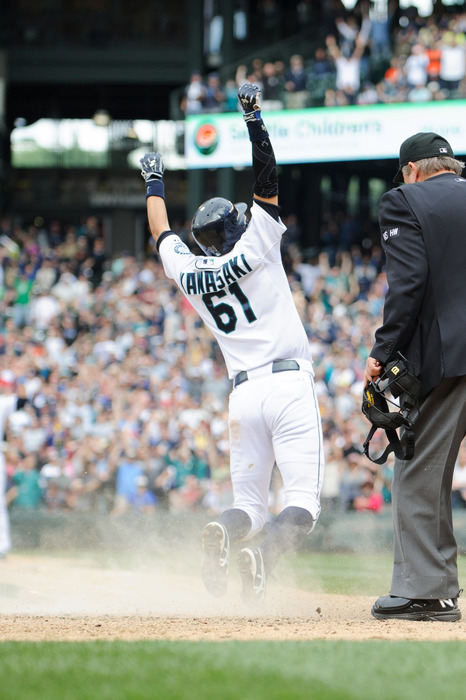You have probably heard that more times than you can count, if you are a baseball fan. It is, mathematically, the longest season of any professional sport. 162 games in 6 months, each lasting 3-4 hours, give or take an hour here and there. That's the most time spent on the field of any sport. So, we hear, quite often, about the long season.
The length of the season, just by adding up days, doesn't really approach the problem of the Long Season, though. Those 162 games are played six or seven days in a row, on a regular basis. The limit on the number of consecutive games played? Let me give you the official wording:
(12) No Club shall be scheduled, or rescheduled if practicable, toYes, twenty day in a row are possible in the regular conduct of business in the MLB. Have you ever worked twenty days in a row at your job? Even if your job isn't the most demanding in the world, how would you think of your job at the end of a twenty day stretch. I would call it a grind. I might include a few curse words before the word 'grind', but 'grind' would be my general feeling.
play more than 20 consecutive dates without an open day. A rainedout
game may be rescheduled to an open date in the same series, or
to an open date at the end of the same series, if (a) the open date is
a road off-day for the visiting Club, and (b) the rescheduling does
not result in the home team playing more than 24 consecutive dates
without an open day.
Baseball is a long grind.
To keep it from wearing them down, sometimes, players step out of the grind into something a little more absurd. If something makes a moment jump out from all the other moments in a 162 game run, that's kind of a little victory inside a particular game.
Munenori Kawasaki is playing his own game against the monotony in the following clip. I'm sure he's winning. He's scoring points in my book, anyway.
Now, first of all, I hope you had the volume up, because the reaction of the announcer only adds to the effect here. Second, I have to think that the first base coach told him to 'bluff to second'. Maybe he told him something else entirely, but he sure didn't give him the sign to 'run in place for two seconds' like that. I will choose to think he was told to bluff to second, and took only the loosest possible interpretation of that instruction.
There are so many things that his 'move' brings to mind. Like, perhaps, it's the dress rehearsal for a play about baseball, and the director says "OK, Mr. Actor Guy, at this point in the script you bluff to second base." And the actor has never seen a baseball game in his life, but he decides to do his best fake-run-across-the-stage of his life.
Third, (did you forget I had two other points? They're up there, just below the video.), I hope that you watched the very last part of this clip as well, because, although it appears the tape is being rewound, it isn't. Kawasaki is reverse jogging back to second base as well, demonstrating an almost revolutionary set of techniques for getting around the bases. Derek Jeter is astounded. He is not easy to astound, he has five World Series rings, he's seen a lot of things happen on the field. He has never before seen the things that Munenori Kawasaki is doing.
I do not know what he has in his mind to accomplish next. I do not even know what he accomplished last time. I am sure, though, that even if the Mariners are losing, Munenori Kawasaki is winning.
With a big thanks to Baseball Nation for bringing this video to my attention.

No comments:
Post a Comment